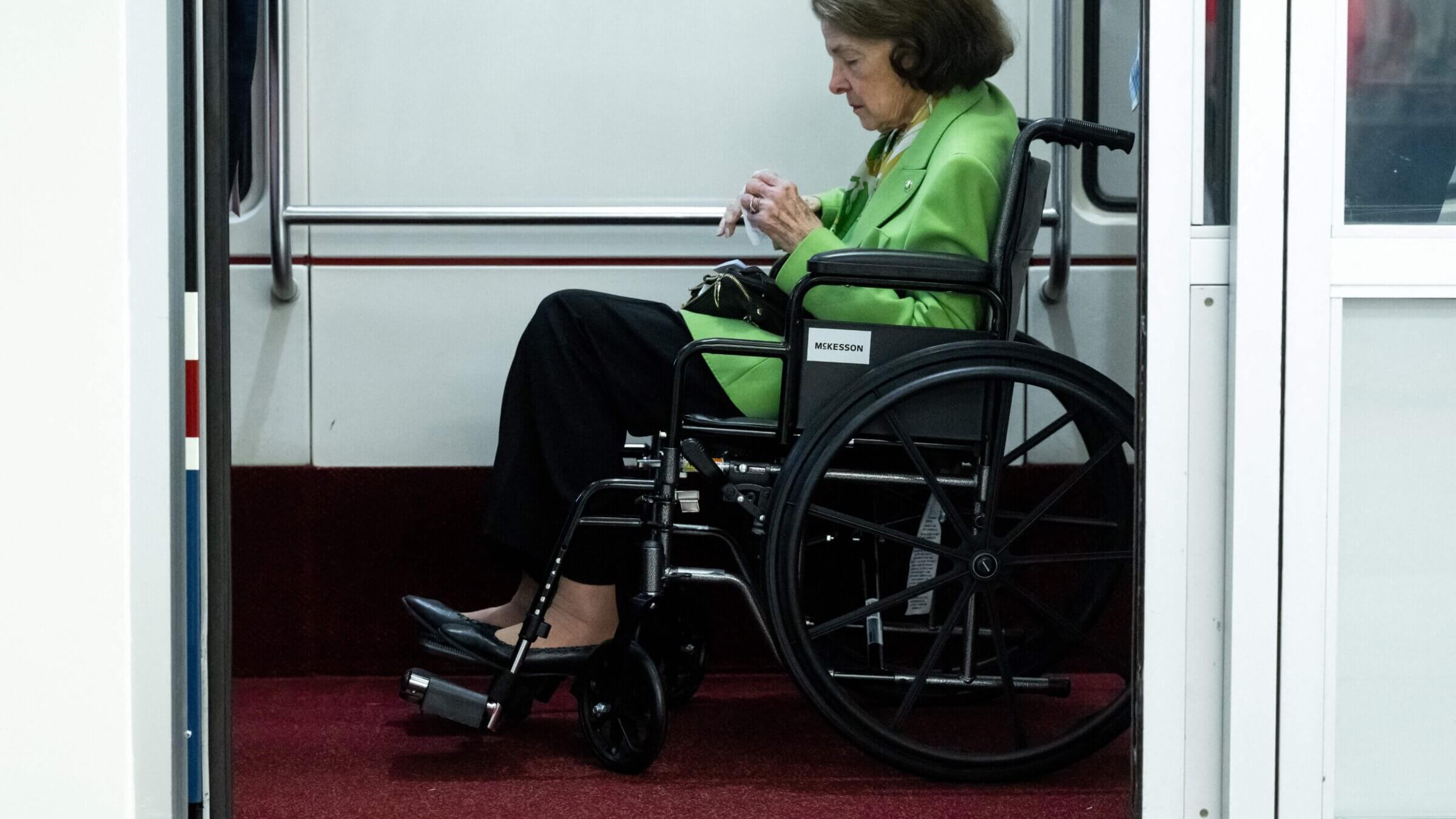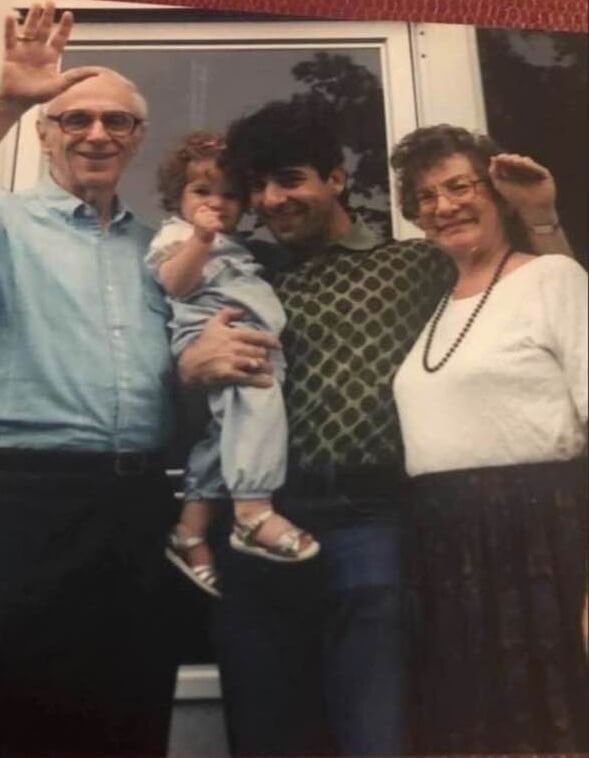After yet another health crisis, why can’t Sen. Dianne Feinstein step down with dignity?
Retiring was an act of dignity for my Jewish grandfather. It could be for Feinstein, too.

U.S. Sen. Dianne Feinstein sits in a wheelchair on the Senate Subway on Capitol Hill in Washington, DC, on July 27, 2023 Photo by SAUL LOEB/AFP via Getty Images
I have been thinking about my grandfather this week for two reasons.
The first is that his yahrzeit, the anniversary of his death, is this Thursday. He passed away 13 years ago on Aug. 10 at the age of 86.
The second reason is that Sen. Dianne Feinstein, the oldest member of the Senate — already the subject of speculation regarding potential cognitive decline — was briefly hospitalized after a fall. She is 90 years old.
There have been many, increasingly loud calls for Feinstein to step down. This week’s news will surely encourage more. Some of Feinstein’s Senate colleagues have rebutted these calls by calling them sexist and ageist.
I consider the idea that it is sexist to question whether a 90-year-old who has missed months of work for health reasons should perhaps retire to be an insult to the very concept of feminism. But, even if I did not, that is outside the scope of this piece.
Both Feinstein and my grandfather were public servants. But my grandfather was able to take a path of dignity. When I think of him, one of the first things that comes to mind is that he was Hingham District Court’s first justice for 32 years. When he turned 70, in 1994, he had to retire, as judges in Massachusetts must do at that age.
My grandpa loved being a judge. I am sure no small part of him was sad — heartbroken, even — to retire. There was an element of it that felt unfair: Why did he have to retire when federal court judges never did?
“You shall rise before the aged and show deference to the old,” it says in Leviticus. And even if it did not, we should respect those who have spent more time on this Earth. It is often true that age brings wisdom and experience.

But it is also true, as we see often, that there is a time when it is harder for people to express that wisdom, and translate that experience in their public service. My grandpa stopped being a judge while he could still give it his all, and while he was still capable of serving in the way that he saw appropriate.
I don’t know if age 70 was too early, or if 75 or even 80 would have been more appropriate. But I do know that there was respect and dignity in that retirement. My grandpa got to stop doing something in which he took great pride while he still took pride in being able to do it.
I do not mean to compare being a Hingham Court District Judge to being a U.S. Senator (although we were all very proud of him). I am not advocating for a mandatory retirement age of 70. Nor am I telling Feinstein’s family how to feel.
But sometimes the most respectful thing we can do for those who have served us is to tell them that someone else should take a turn serving now.
In other words, we can respect our elders and be grateful for their service while also thinking that someone else should get to serve. These two things are not in tension: To want someone to finish their service while they are still fully capable of serving is to want them to finish their service at full capacity and with dignity.
There is nothing disrespectful about that: about wanting someone to finish their public service while they are still fully, capably, intentionally serving the public, and while the conversation is about that service, and not about their age or faculties.
I do not need to wonder what my grandpa would have said on this subject. When he passed away, the Patriot Ledger, a daily newspaper in Quincy, Massachusetts, reminded its readers, including the late judge’s granddaughter, of what the judge said before his retirement: “I’ve been here long enough. Once you start reminiscing about how the old days were better, you know it is time to leave.”
A message from our Publisher & CEO Rachel Fishman Feddersen

I hope you appreciated this article. Before you go, I’d like to ask you to please support the Forward’s award-winning, nonprofit journalism so that we can be prepared for whatever news 2025 brings.
At a time when other newsrooms are closing or cutting back, the Forward has removed its paywall and invested additional resources to report on the ground from Israel and around the U.S. on the impact of the war, rising antisemitism and polarized discourse.
Readers like you make it all possible. Support our work by becoming a Forward Member and connect with our journalism and your community.
— Rachel Fishman Feddersen, Publisher and CEO





























